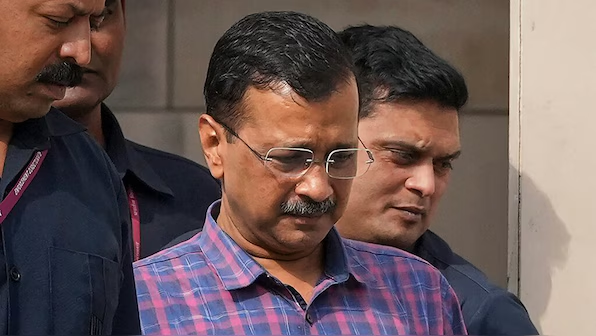The Supreme Court on Friday granted bail to Delhi Chief Minister Arvind Kejriwal in a corruption case related to the alleged excise policy scam probed by the CBI, saying lengthy imprisonment was an unjust deprivation of his liberty.
The bench that heard the case, comprising justices Surya Kant and Ujjal Bhuyan, ordered the release of Kejriwal on bail. The court grants bail with conditions, including a Rs 10 lakh bail bond. Kejriwal must avoid making public comments about the case and attend every trial court hearing unless exempted.
Justice Ujjal Bhuyan, in a separate judgment, made some scathing remarks about the timing of Kejriwal’s arrest. He questioned the need behind the CBI action and termed it ill-timed. Thereby complicating the bail situation arising out of the ED case. “It will be a travesty of justice to keep him incarcerated,” Justice Bhuyan reasoned, against the backdrop of Kejriwal’s bail in the ED case. He said, “Bail was the rule and jail an exception. Courts must see that processes are not abused to become a tool of harassment.”
In one fell swoop, Justice Bhuyan termed as unjustified the arrest of Kejriwal by the CBI. And ordered the immediate release of the Chief Minister. The Supreme Court had on September 5 reserved the order after hearing the arguments of both counsel appearing for Kejriwal and the CBI.
The CBI opposed the direct move of Kejriwal to the high court for bail, saying the plea should have been moved first to the trial court. On August 5, the Delhi High Court upheld Kejriwal’s arrest, calling it “legal.” The court rejected Kejriwal’s plea, noting the agency had sufficient evidence and proper sanction before further investigation.
The High Court also stated that the CBI acted without malice and highlighted Kejriwal’s influence over witnesses. It observed that witnesses came forward only after Kejriwal’s arrest, underscoring his significant role.
Kejriwal’s troubles began on March 21, 2024, when the ED arrested him in a money laundering probe related to the Delhi excise policy 2021-22. The CBI arrested him again on June 26, 2024, while he was still in ED custody.
In summary, the Supreme Court’s bail decision reflects its concern over prolonged detention. And its effort to balance legal proceedings with individual rights.
ANI
